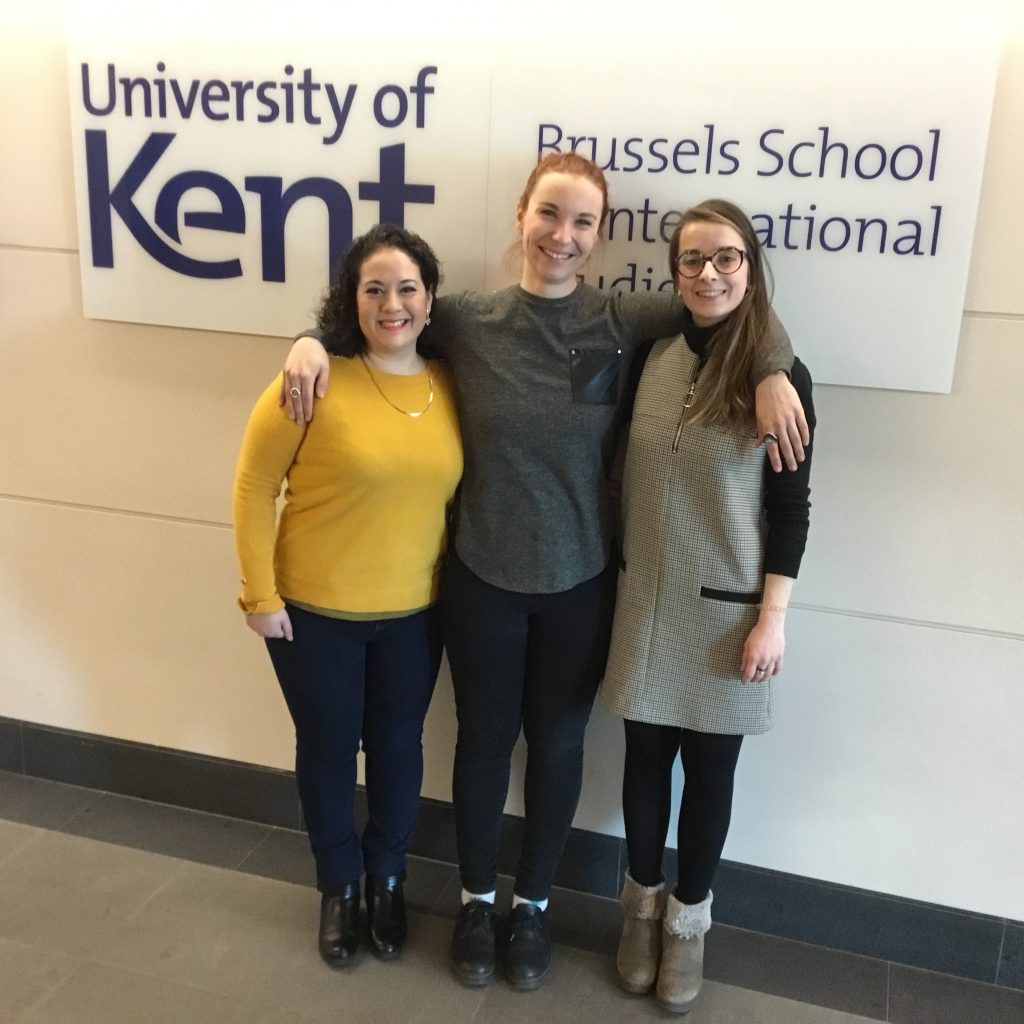MOVES – Migration and Modernity: Historical and Cultural Challenges – is a European Joint Doctorate (EJD) funded by the European Union.
This doctoral programme is defined by a unique collaboration between university researchers in the Humanities and Social Sciences and partners across sectors (NGOs, charities working with migrants and cultural and creative industries) in five EU countries. It identifies the contemporary issue of migration as a problem to be treated within the wide context of modernity, acknowledging the way it has shaped European identity, first in the outward thrust of European nations in colonial movements, then through emigration from many European countries, and recently through immigration as the predominant form of mobility in Europe.
There are 5 different universities participating:
Charles University, Prague
Universidade do Porto
Université Paul-Valéry Montpellier 3
Freie Universität Berlin
University of Kent
Over view and Content Structure of the Doctoral programme
The 15 PhD students, called Early Stage Researchers (ESR) are spread equally across the five institutions for the duration of the 36-month doctorate. Each ESR is based at two different institutions, 18 months at each, and will sign two separate employment contracts, one with each of their pathway institutions. This inbuilt mobility will increase the interdisciplinary content of the doctorate and ensure that each ESR will benefit directly from sustained exposure to more than one institutional environment. At the end of the doctorate, after a successful final examination (‘viva’), the two universities that have hosted the ESR and supervised the research will award a joint degree.
Meet the researchers currently at the University of Kent!
Rosario Rizzo Lara is a PhD student currently based at the Brussels School of International Studies. Her research focuses on Contemporary Migration Trends from Central America to the United States. It particularly looks at the so-called “Caravans of Migrants” from Honduras, Guatemala and El Salvador that crossed into Mexico in 2018 and 2019 trying to reach the U.S. The research aims to provide an understanding of the social and political factors that influenced these abrupt movements, and the new forms of collective migration.
Rosario received her B.S. in International Business Management from Universidad Veracruzana in 2007 in Mexico. She studied an MA in Latin American Studies at the University of Texas at Austin in 2010. Her thesis focused on an analysis of the resilience mechanisms used by corn farmers to cope with the implementation of NAFTA and the neoliberal model in Mexico. Aside from the thesis, she worked in the implementation of a community based solid waste management project in the Dominican Republic. She also holds a Post Graduate Certificate on US-Mexico Border Studies from El Colegio de la Frontera Norte. For that project, she looked at unaccompanied children from the Northern Triangle of Central America that were identified and detained in transit in Mexico.
Naiara Rodriguez Peña is part of the European Joint Doctorate MOVES project. Her research inquires how development and migration are related in Argentina, given that the nexus between the two departs from general trends on the field. She focuses on how developmental processes have historically shaped motility and mobility processes. In this manner, her research investigates how development influences the capabilities and aspirations to migrate of individuals, how such potentiality turns into actual migration, and the adaptation strategies of those that aspire to but do not have the means to move. She is particularly interested in understanding the role of the state in the transition from (im)motility to mobility.
Naiara holds a BA in International Relations from the University of Deusto, Spain (2017), a MSc in Migration and Ethnic studies from the University of Amsterdam (UvA), the Netherlands (2018, cum laude), as well as a MSc in Political Economy (UvA; 2019, cum laude). While at the UvA, she was part of the Migration as Development (MADE) project. At MADE, she conducted research on how transformation in a rural, frontier Brazilian town affected its migration dynamics and socio-economic structure, which has informed the direction of her current project.
Her research interests include the role that states play in migration –in particular, sending countries perspectives on emigration and circulation movements and non-migration policies-, the relation between broader processes of change and migration dynamics, and the adaptation mechanisms followed by migration and return processes.
Carmen Tasser is a PhD candidate at the University of Kent since 2019 and a Marie Sklodowska-Curie Early Stage Researcher within the MOVES project. Her doctoral research concerns the Pre-Migration period of cultural minorities within the EU and the building of a European Identity. The case studies for her PhD concern German-speaking Italians in South Tyrol and Russian-speaking citizens of Estonia. She obtained her previous degrees at the University of Liechtenstein, the Estonian Academy of Music and Theater and the Estonian Business School.

